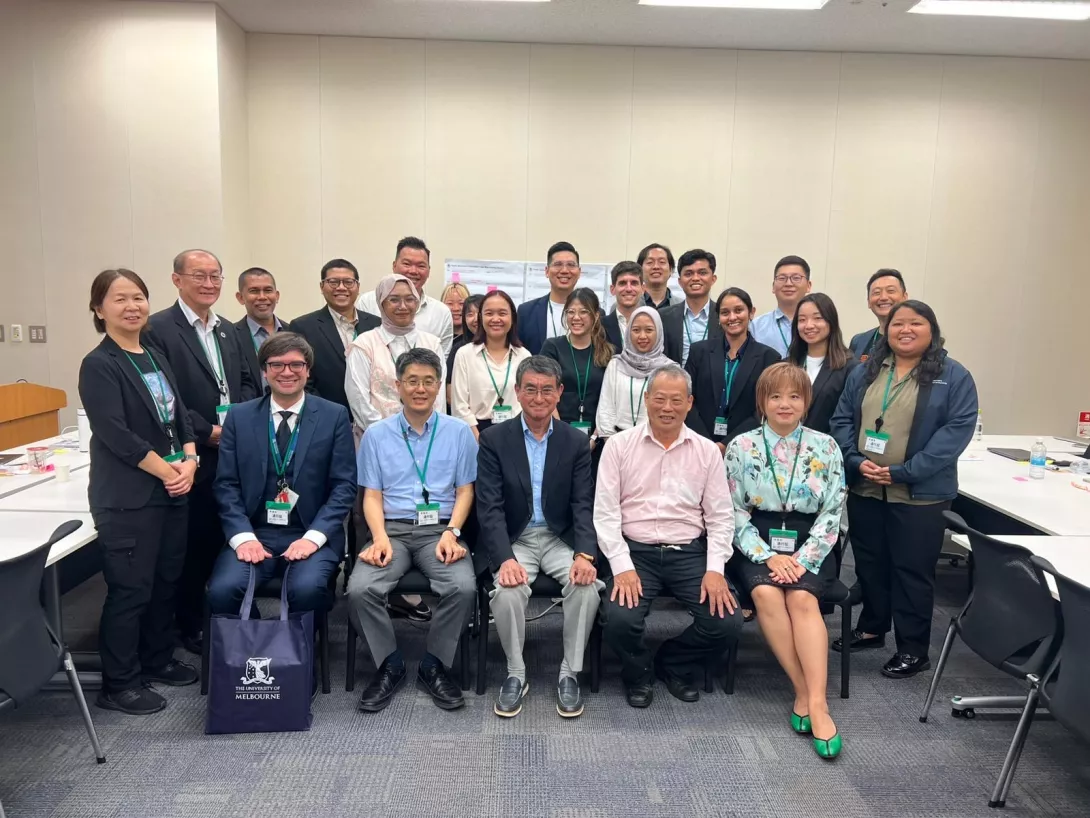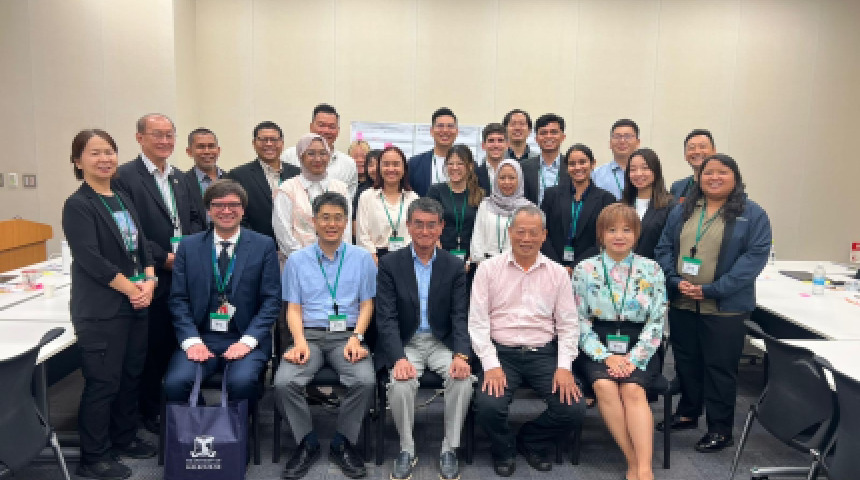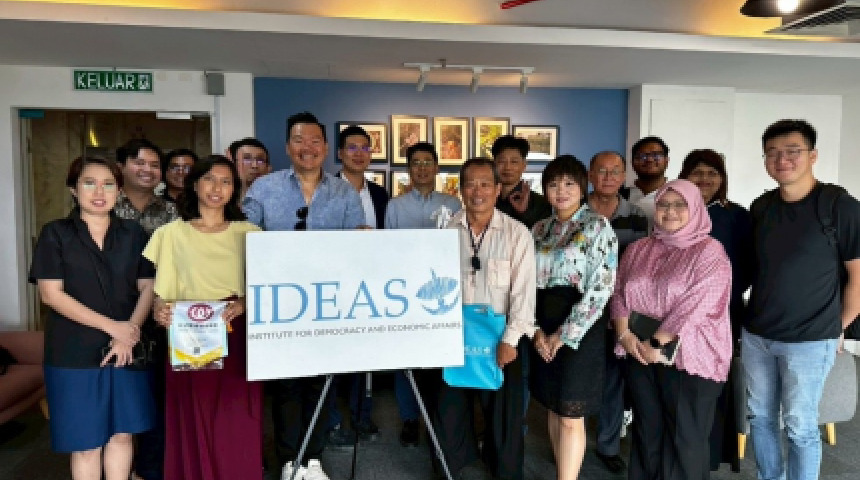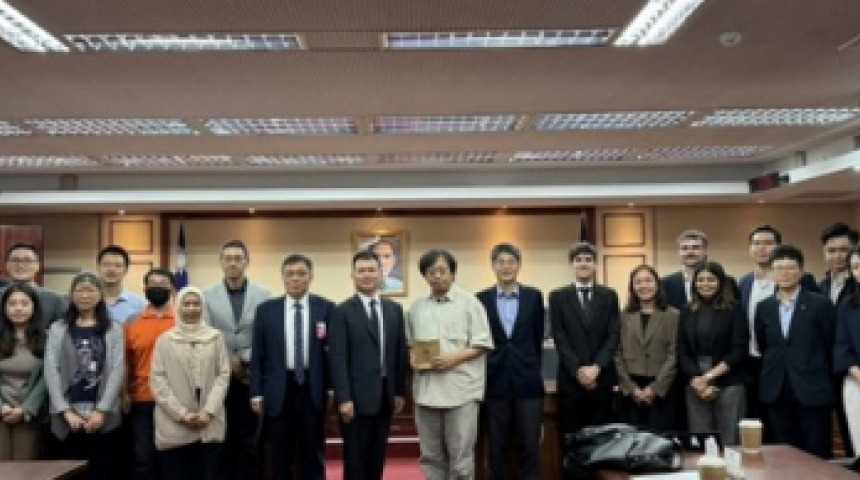CCW Successfully Exports Taiwan’s Democratic Experience: Establishes the Asia Parliamentary Transparency Index with Nine Countries and Launches a Regional Survey

Fourteen civic organizations from nine countries gathered in Tokyo, Japan, for the Asia Parliamentary Transparency Index (APTI) Workshop.
Seated in the front row (from right to left): Prof. Herlin Chien (Deputy Convener of the CCW International Affairs Committee), Tungru J. Shieh (Chairperson of CCW), Kono Taro (Senior Member of the House of Representatives, Japan), and Prof. Akihiro Ogawa (Asia Institute, University of Melbourne).
CCW Successfully Exports Taiwan’s Democratic Experience: Establishes the Asia Parliamentary Transparency Index with Nine Countries and Launches a Regional Survey
Tokyo, September 18–19 — The Asia Parliamentary Transparency Index (APTI) Workshop, co-hosted by Citizen Congress Watch (CCW) and the Asia Institute at the University of Melbourne, successfully concluded in Tokyo. For the first time, fourteen Parliamentary Monitoring Organizations (PMOs) from nine Asian countries and Argentina, along with academic representatives, came together to advance parliamentary reform across Asia.
A Shared Vision for Civil Society
The APTI is a flagship initiative of the Asian Alliance for Parliament Open (AAPO), a civil society network committed to parliamentary oversight and democratic governance. It was created in response to growing global demands for transparency and accountability in politics.
The Index is built around four core dimensions:
Transparency: proactive disclosure of parliamentary structures, personnel, legislative activities, and decision-making processes.
Accountability: oversight of finances, conflicts of interest, responsibilities, and institutional checks and balances.
Citizen Participation: opportunities for citizens to engage in parliamentary processes and influence policy.
Legal Framework: legitimate rules and procedures that safeguard openness and participation.
These dimensions not only guide research but also embody the shared vision of the PMOs that gathered in Tokyo.
Dialogue Across Borders
Over two days, participants shared experiences, compared national practices, and debated every detail—from defining indicators to designing survey questionnaires. One participant observed:
“Asian political systems are diverse, and finding common indicators is no easy task. But precisely because it is difficult, the results are all the more meaningful.”
The workshop produced the first draft of the Parliamentary Transparency Index, designed by civil society and academically reviewed for rigor. This collaborative model balances civic needs with scholarly credibility, laying a foundation for meaningful cross-national comparisons.
Organizations from across Asia and beyond took part: CCW (Taiwan), National Center for Integral Development (Mongolia), PoliPoli and Code for Japan (Japan), CFOI (South Korea), WeVis (Thailand), IPC and PSHK (Indonesia), PRISMA, MYMP, and Sinar Project (Malaysia), LENTE (Philippines), Verité Research (Sri Lanka), and Directorio Legislativo (Argentina).
Despite working under very different political systems, all share a common goal: to make parliaments more transparent, open, and accountable. This cross-border collaboration fosters mutual learning and strengthens democracy regionally and globally.
Academic and Civil Society Collaboration
The Asia Institute at the University of Melbourne reviewed survey designs and methodologies to ensure strong academic grounding. CCW Chairperson Professor Tung-ru Jeffery Shieh highlighted Argentina’s valuable contributions, CCW’s past experiences, and Professor Akihiro Ogawa’s long-standing support from Melbourne.
Professor Herlin Chien of National Pingtung University of Science and Technology added:
“If, as Benedict Anderson argued in 1983, nations are ‘imagined communities,’ then while citizens imagine their sense of national belonging, they also carry hopes for good governance. Over two days of dialogue in Japan, we sought to integrate our diverse expectations and visions of ‘parliamentary good governance’ into the design of the indicators. Our aim is to deepen democracy across Asia and ensure it better reflects civic needs in all their diversity.”
Looking Ahead
The Tokyo workshop is only the beginning. Draft indicators will undergo academic review by late 2025, followed by a ten-country survey in 2026. An international conference in Taiwan will then unveil the survey results.
This initiative exemplifies a partnership model where civil society leads, while academic institutions provide expertise to ensure credibility. The resulting transparency survey will serve both as an advocacy tool and as a global reference for parliamentary reform.
Conclusion
Despite vast differences in national contexts, participants shared a single aspiration: to strengthen parliamentary reform and make democracy more authentic and resilient. Fourteen organizations dedicated their time and energy to this necessary conversation.
As CCW’s guiding principle reminds us: without transparency and accountability, there can be no public trust; without a functioning parliament, there can be no functioning state. This conviction resonates not only in Taiwan but across all democratic societies.
Democracy remains a work in progress. By making parliaments more transparent, inclusive, and responsive, civil society organizations are helping democracy advance. The Tokyo workshop marks the start of that journey. With shared indicators and cross-national surveys, parliaments worldwide will be able to learn from one another, spurring reforms and building the trust essential for democratic life.




回應文章建議規則: